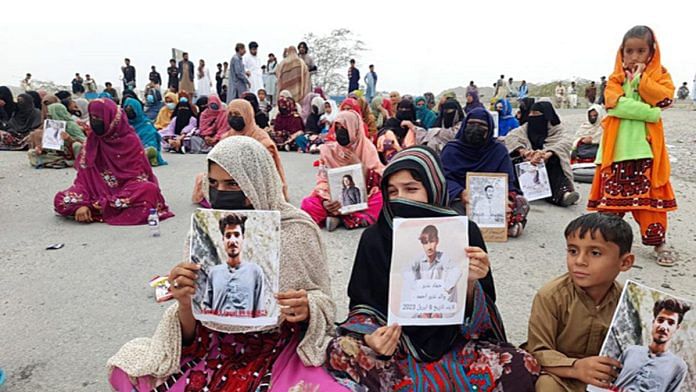New Delhi: In a letter addressed to India’s Prime Minister Narendra Modi and senior government leaders, Baloch representative Baloch has extended “unconditional moral support” to India, calling it a “beacon of hope for oppressed nations” amid escalating tensions between New Delhi and Islamabad following Operation Sindoor.
Released the day Parliament convened to debate Operation Sindoor, the letter underscores solidarity between Baloch nationalists and the Indian government. Mir Yar, a prominent voice for Baloch self-determination, hopes that India would raise the Balochistan issue in Parliament and alleges that Pakistan’s military has intensified its crackdown in Balochistan.
“These actions are a direct reprisal for the principled stance of the Baloch people, who have chosen to stand in solidarity with the citizens of India,” he wrote in the letter addressed to Lok Sabha Speaker Om Birla and senior cabinet ministers including Defence Minister Rajnath Singh and Home Minister Amit Shah.
In its June 2025 report, ‘Paank’, the human rights department of the Baloch National Movement (BNM), reported that the Baloch community faces routine harassment, unlawful raids, and enforced disappearances in Pakistan. These actions have created a climate of fear and insecurity, families often suffer without legal recourse or information and many victims are later found dead, showing signs of torture, the report says. The crisis continues amid institutional silence and lack of accountability, the report adds.
Mir Yar praised the unity displayed by India’s ruling and opposition parties, the professionalism of the armed forces, and what he called the “responsible” role played by the national media in covering Operation Sindoor.
“India and Balochistan share a deep-rooted history of friendship and brotherhood that spans thousands of years,” he said in a separate statement to ThePrint.
“Long before the creation of Pakistan, our two nations maintained strong trade and diplomatic ties. The solidarity shown by 60 million Baloch during Operation Sindoor is a testament to this enduring bond,” he added.
Citing the millennia-old civilisational and cultural links between India and Balochistan, Mir Yar urged Indian lawmakers to recognise these ties in the parliamentary discourse. He specifically highlighted the Hinglaj Mata Mandir—a revered Hindu pilgrimage site and one of the 51 ‘Shaktipeeths’—located in Balochistan, which he said continues to be protected by the local Baloch population despite extremist threats.
“This is not just a geopolitical opportunity,” Mir Yar Baloch wrote in the letter. “It is a test of India’s moral leadership in the region. In the spirit of ‘Vasudhaiva Kutumbakam’—the world is one family—we ask India to stand with us in our pursuit of freedom, dignity, and justice.”
The letter also lays out strategic arguments for India’s support of an independent Balochistan, suggesting that it would sever Pakistan’s access to the Arabian Sea via Gwadar and disrupt the China-Pakistan Economic Corridor (CPEC), a project New Delhi views as a major security concern. He added that an independent Balochistan could open new trade corridors for India to Central Asia and the Middle East.
Mir Yar appealed to India’s moral and geopolitical calculus in the letter and said, “The Baloch people have consistently looked toward India as a beacon of hope, and their unwavering support for our sovereignty, particularly during events like Operation Sindoor, deserves a principled response from your leadership.”
(Edited by Viny Mishra)
Also read: Pakistan wants to revive jirgas—council of elders who ordered honour killing of Baloch couple




